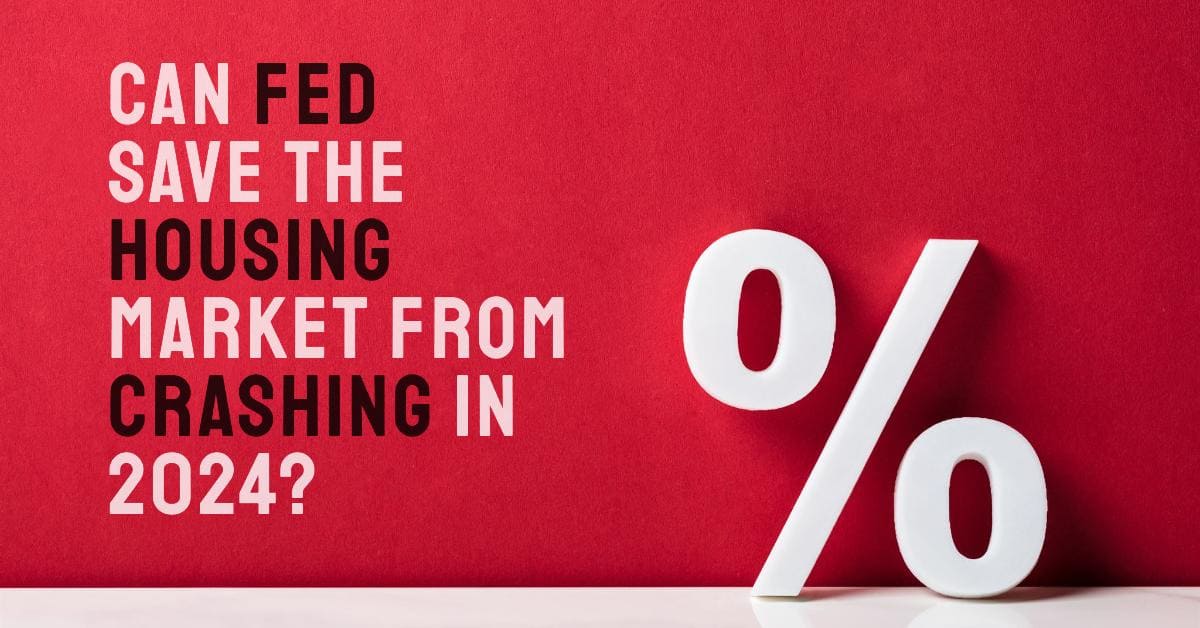The question on many investors' and homeowners' minds is the role of the Federal Reserve (the Fed) in potentially saving or stabilizing the housing market. While potential rate cuts could offer some support, the housing market appears to be undergoing a correction regardless.
The Fed has a toolkit at its disposal that can influence the real estate market, primarily through monetary policy, which includes setting interest rates and regulating the money supply. The Federal Reserve's main tool in influencing the real estate market is through setting interest rates.
When the Fed raises rates, borrowing becomes more expensive, including mortgages. This reduces affordability for buyers, thus cooling down the market. Since 2022, the Fed has been raising rates in an effort to combat inflation, which has resulted in a slowdown in the housing market.
The US Federal Reserve (US Fed), under the leadership of Chair Jerome Powell, on September 18, 2024, made its first interest rate cut since 2020, lowering rates by 50 basis points (0.5%) to a range of 4.75 to 5 percent.
With signs of easing inflation, there is speculation that the Fed might cut rates one more time by the end of 2024. This action could make mortgages more affordable and potentially reignite buyer activity. However, experts are cautious, predicting that rates are unlikely to fall below 6% this year.
Irrespective of the Fed's actions, the housing market is already experiencing shifts. Home price growth is slowing, and inventory is showing signs of a slight increase. These indicators suggest a transition towards a more balanced market compared to the seller's market observed in recent years.
Can Fed Save the Housing Market from Crashing in 2024?
Interest rates are a powerful tool that can affect the real estate market significantly. A decision by the Fed to increase interest rates typically aims to cool down an overheating economy and can lead to a slowdown in the housing market. Conversely, lowering interest rates can stimulate the market by making borrowing cheaper, thus encouraging buying and lending activities.
In the current climate, experts have noted several factors that are influencing the real estate market. Mortgage rates have remained high compared to the historic lows of 2020 and 2021, contributing to a stagnation in housing activity. Additionally, the economic uncertainty, including high household debt and inflation rates above the Fed's target, poses challenges to the market's stability.
The Fed's actions in 2024 will be closely watched as they could signal the market's future direction. A deliberate increase in rates could indicate a strategic slowdown, while a decrease might suggest an attempt to invigorate the market. However, it's important to note that the Fed's policies are not the only factors at play. Economic growth, geopolitical events, and the upcoming 2024 election could also impact the real estate market and investors' decisions.
Furthermore, the global property market is showing signs of stabilization, and the private real estate market is being assessed for its state and opportunities for recovery and transformation. This includes embracing technology, sustainability, and addressing the affordable housing crisis.
Other Things That Impact the Housing Market
The housing market is a dynamic entity, influenced by a myriad of factors that interplay to shape its current state and future trajectory. Here are some pivotal factors currently affecting the real estate market:
1. Technological Advancements:
The rise of property technology (proptech) is revolutionizing the industry. From data-driven property management to artificial intelligence and predictive analytics, technology is enhancing efficiency and decision-making processes.
2. Economic Conditions:
The market is sensitive to national economic trends, including inflation rates, employment levels, and GDP growth. These factors influence consumer confidence and purchasing power, which in turn affect real estate demand and pricing.
3. Urbanization and Demographic Shifts:
Changing demographics, such as the aging population and urban migration, are altering housing needs. The demand for different types of housing, like retirement homes and urban apartments, is evolving accordingly.
4. Government Policies:
Fiscal policies, housing regulations, and zoning laws play a significant role in the development and affordability of real estate. Government initiatives can either stimulate or restrain the market.
5. Global Events:
Geopolitical tensions, international trade agreements, and global pandemics can have ripple effects on the real estate market, influencing investor sentiment and cross-border investments.
6. Environmental Factors:
The increasing awareness of climate change is leading to a demand for sustainable and resilient building designs. This trend is shaping construction practices and investor preferences.
7. Interest Rates:
As already discussed above, as a tool of monetary policy, interest rates set by central banks have a direct impact on mortgage rates, influencing the affordability of real estate and the volume of transactions.
8. Secondary Markets:
The emergence of secondary markets is challenging the dominance of traditional real estate hubs. This shift is driven by the search for more affordable options and better quality of life outside of primary markets.
9. Housing Supply and Inventory:
The availability of housing stock, or lack thereof, can significantly sway market prices and rental rates. Construction rates, land availability, and renovation trends are key contributors to this factor.
10. Consumer Behavior:
The preferences, expectations, and behaviors of consumers are constantly evolving, often driven by generational changes and cultural shifts. These can influence the types of properties in demand and the modes of transaction.
11. Investment Trends:
The flow of capital into real estate, whether from individual investors or institutional entities, affects market dynamics. Investment trends can signal the market's health and influence its direction.
In conclusion, while the Fed has significant influence over the real estate market through its monetary policies, it is not the sole determinant of the market's fate. The interplay of various economic factors and the Fed's response to them will shape the real estate landscape in 2024. Investors and homeowners alike should stay informed and consider a wide range of indicators when making decisions in this dynamic market. For a more detailed analysis, you can refer to the comprehensive reports and predictions by experts in the field.




